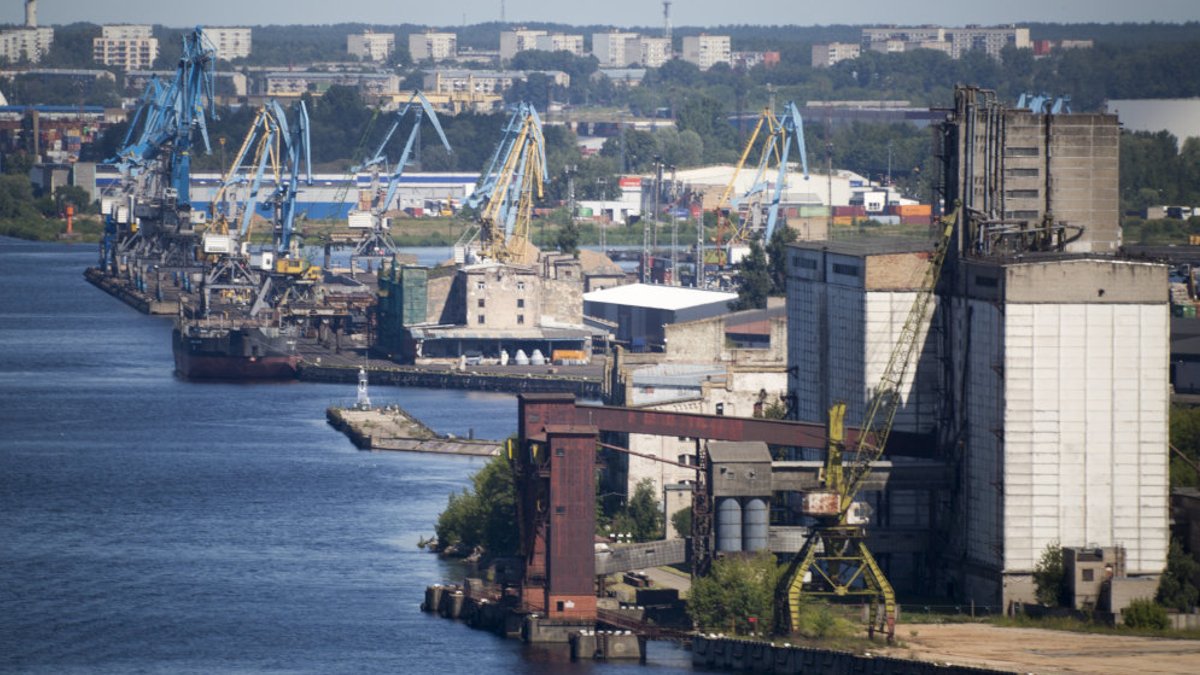Main image by LETA
Latvian companies continue servicing Russia’s shadow fleet despite sanctions. According to an investigation by Delfi, Latvian firms keep supplying fuel to vessels involved in bypassing restrictions on Russian oil exports.
The tanker Zircone, registered under the Cypriot flag but based in Latvia, regularly refuels ships, most of which belong to Russia’s shadow fleet. Last week, the vessel arrived at Riga port, presumably to load fuel, and docked at the oil products terminal of SIA Ovi, a company engaged in wholesale fuel trading. Company representatives refused to disclose information about clients or cargo.
During a brief port visit, eight safety violations were detected onboard Zircone. The inspection, carried out by the Customs Department of the State Revenue Service (VID), did not find major breaches, and the vessel returned to sea. VID Deputy Director Sandra Karkliņa-Admīne explained that bunkering is allowed only within port territory and controlled through registered customs procedures, but if fuel transfer occurs in neutral waters, Latvian authorities lose oversight.
Officials acknowledged the situation is problematic, but fueling suspicious vessels is not formally prohibited, leaving the state without tools to halt shadow fleet operations. Journalists noted that Zircone and Rina operate cautiously, avoiding clients on EU and US sanctions lists, yet they cannot be held accountable for other operations due to the special status of bunkering, partially exempt from sanctions.
Last month, the EU considered extending restrictions not only to the shadow fleet vessels themselves but also to companies that refuel them, although no concrete decisions have been made. Latvian Foreign Minister Edgars Rinkēvičs confirmed there is no unified European stance on banning such operations.
A joint investigation by Latvian, Lithuanian, and Estonian journalists revealed that between 2023 and 2024, Baltic companies using the Zircone and Rina conducted around 300 bunkering operations, servicing 177 tankers, 159 of which traveled to or from Russian ports. About a third of the serviced vessels were linked to companies under sanctions.
Both vessels previously operated under the Fast Bunkering brand, registered in Riga. Following Russia’s full-scale invasion of Ukraine, the company changed its name, address, and ownership, allegedly continuing operations through new Latvian firms Welton Enterprises and Ship Service, connected to entrepreneurs previously involved with Estonian NT Bunkering.
Experts estimate that Russia earned roughly 25 billion dollars over two years via the shadow fleet, bypassing sanctions and oil price caps.
SIA Ovi, mentioned in the investigation, reported 12.3 million euros in revenue and 1.15 million euros in losses last year, which management attributed to EU sanctions on Russian oil products. The company is owned by SIA Ovi Holding, controlled by the US-based Oiltrans LLC, whose ultimate beneficiary is believed to be Vladimir Oderov.




















